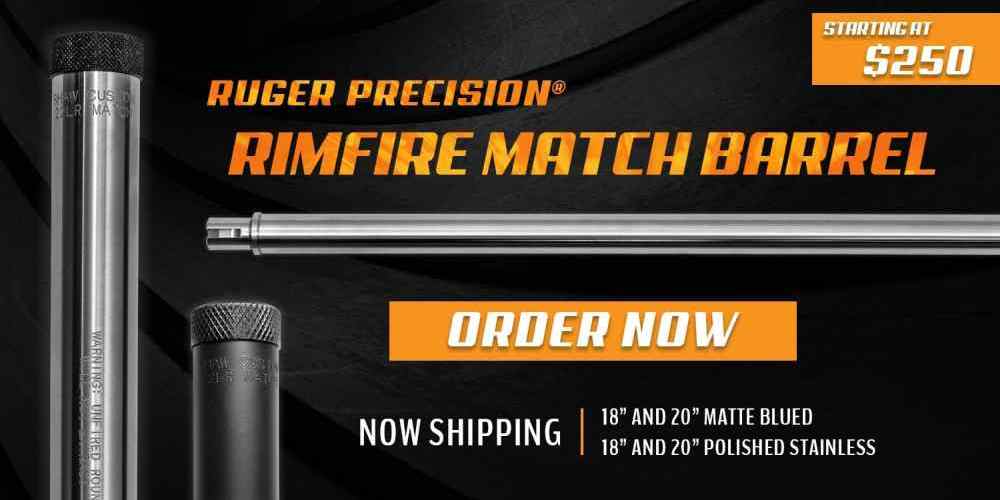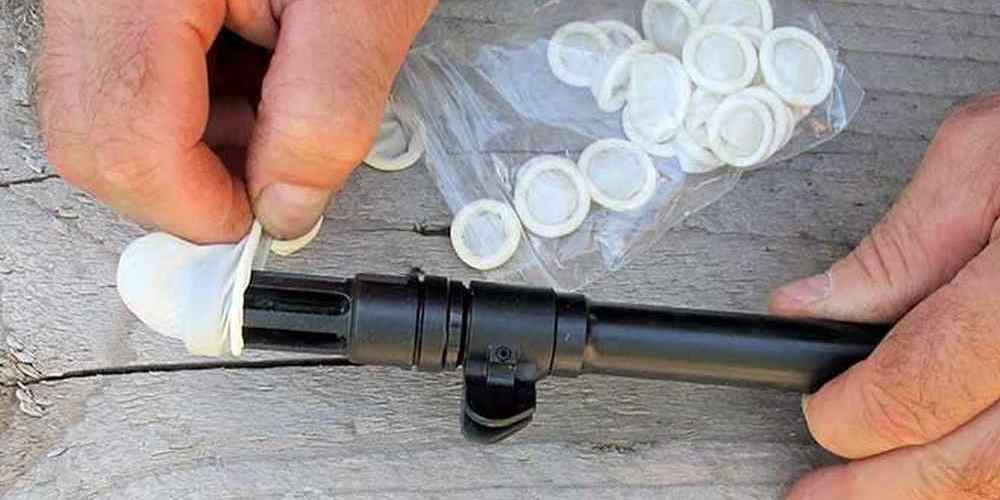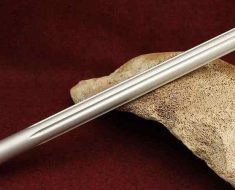“Choosing the right barrel can make all the difference in your shooting experience.”
Pros and Cons of Threaded Barrels
Threaded vs. Non-Threaded Barrels: A Guide for Rifle Enthusiasts
If you’re a rifle enthusiast, you know that the barrel is one of the most important components of your firearm. When it comes to choosing between a threaded or non-threaded barrel, there are several factors to consider. In this article, we will explore the pros and cons of threaded barrels to help you make an informed decision.
One of the main advantages of a threaded barrel is the ability to attach a muzzle device such as a suppressor or muzzle brake. This can help reduce recoil and muzzle rise, making your shots more accurate and comfortable to shoot. Additionally, a threaded barrel allows for easy customization, as you can easily swap out different muzzle devices depending on your shooting needs.
Another benefit of a threaded barrel is the ability to attach a thread protector when a muzzle device is not in use. This can help protect the threads from damage and debris, ensuring that your barrel remains in good condition for years to come. Additionally, a thread protector can help maintain the aesthetic appeal of your rifle when a muzzle device is not attached.
On the other hand, there are some drawbacks to consider when it comes to threaded barrels. One of the main concerns is the added weight and length that a muzzle device can add to your rifle. This can affect the balance and maneuverability of your firearm, especially if you are using it for hunting or competition shooting. Additionally, threaded barrels can be more expensive than non-threaded barrels, as they require additional machining and materials.
Another potential downside of threaded barrels is the risk of thread damage if a muzzle device is not properly installed or removed. This can lead to costly repairs or even render your barrel unusable. It is important to follow manufacturer guidelines and use the proper tools when attaching or removing a muzzle device to avoid damaging the threads.
In conclusion, threaded barrels offer several advantages for rifle enthusiasts, including the ability to attach muzzle devices for improved performance and customization. However, there are also some drawbacks to consider, such as added weight and potential thread damage. It is important to weigh the pros and cons carefully before deciding whether a threaded barrel is right for your shooting needs.
Ultimately, the decision between a threaded or non-threaded barrel will depend on your personal preferences and shooting style. If you value customization and improved performance, a threaded barrel may be the right choice for you. However, if you prioritize simplicity and cost-effectiveness, a non-threaded barrel may be more suitable. Whichever option you choose, be sure to properly maintain and care for your barrel to ensure optimal performance and longevity.

Benefits of Non-Threaded Barrels
When it comes to choosing a barrel for your rifle, there are many factors to consider. One of the key decisions you’ll need to make is whether to go with a threaded or non-threaded barrel. While threaded barrels are popular for their versatility and ability to easily attach accessories like suppressors and muzzle brakes, non-threaded barrels also have their own set of benefits that make them a great choice for many rifle enthusiasts.
One of the main advantages of non-threaded barrels is their simplicity. Without the need for threading, non-threaded barrels are typically lighter and more streamlined than their threaded counterparts. This can make a significant difference in the overall weight and balance of your rifle, especially if you’re looking to build a lightweight or precision rifle.
In addition to their weight savings, non-threaded barrels are also generally more affordable than threaded barrels. The lack of threading means that manufacturers can produce non-threaded barrels more efficiently, resulting in cost savings that are often passed on to the consumer. This can be a major selling point for budget-conscious shooters who still want a high-quality barrel for their rifle.
Another benefit of non-threaded barrels is their increased accuracy. Threaded barrels can sometimes suffer from inconsistencies in the threading process, which can affect the barrel’s harmonics and ultimately its accuracy. Non-threaded barrels, on the other hand, are typically machined to very tight tolerances, resulting in a more consistent and accurate barrel overall.
Non-threaded barrels are also easier to clean and maintain than threaded barrels. The lack of threading means that there are fewer nooks and crannies for fouling and debris to build up in, making cleaning a simpler and quicker process. This can be especially important for shooters who put a lot of rounds through their rifles and want to spend less time cleaning and more time shooting.
Finally, non-threaded barrels are often more durable than threaded barrels. The threading on a barrel can be a weak point that is susceptible to damage from impacts or rough handling. Non-threaded barrels, with their smooth and uninterrupted surfaces, are generally more robust and less likely to suffer from these types of issues.
In conclusion, while threaded barrels certainly have their place in the world of rifles, non-threaded barrels offer a number of benefits that make them a compelling choice for many shooters. From their simplicity and affordability to their increased accuracy and durability, non-threaded barrels have a lot to offer. Whether you’re building a precision rifle or just looking for a reliable barrel for your next hunting trip, a non-threaded barrel may be the perfect choice for you.
Best Rifles with Threaded Barrels
When it comes to choosing a rifle, there are many factors to consider. One important decision to make is whether to go with a threaded or non-threaded barrel. Threaded barrels have become increasingly popular among rifle enthusiasts for their versatility and customization options. In this guide, we will explore some of the best rifles with threaded barrels on the market today.
One of the top rifles with a threaded barrel is the Ruger Precision Rifle. This rifle is known for its accuracy and precision, making it a favorite among long-range shooters. The threaded barrel allows for the attachment of a suppressor or muzzle brake, reducing recoil and noise. This makes the Ruger Precision Rifle a great choice for hunters who want to remain stealthy while out in the field.
Another excellent option is the Tikka T3x TAC A1. This rifle features a threaded barrel that is compatible with a wide range of muzzle devices. The Tikka T3x TAC A1 is known for its durability and reliability, making it a popular choice among competitive shooters. The threaded barrel allows for easy customization, giving shooters the ability to fine-tune their rifle to their specific needs.
For those looking for a more budget-friendly option, the Savage Axis II XP is a great choice. This rifle comes with a threaded barrel that is compatible with a variety of muzzle devices. The Savage Axis II XP is known for its accuracy and reliability, making it a great option for both beginners and experienced shooters. The threaded barrel allows for easy customization, giving shooters the ability to personalize their rifle to their liking.
If you are in the market for a hunting rifle with a threaded barrel, the Bergara B-14 Ridge is a top choice. This rifle features a threaded barrel that is compatible with a suppressor, making it a great option for hunters who want to remain quiet while out in the field. The Bergara B-14 Ridge is known for its accuracy and reliability, making it a favorite among hunters and sportsmen alike.
Overall, rifles with threaded barrels offer shooters a wide range of customization options and versatility. Whether you are a competitive shooter, hunter, or just enjoy shooting for fun, a threaded barrel can enhance your shooting experience. With so many great options on the market today, finding the perfect rifle with a threaded barrel has never been easier. So, if you are in the market for a new rifle, consider one with a threaded barrel and take your shooting to the next level.
Accuracy Comparison between Threaded and Non-Threaded Barrels
When it comes to choosing a barrel for your rifle, there are many factors to consider. One of the most important decisions you’ll need to make is whether to go with a threaded or non-threaded barrel. Both options have their own set of advantages and disadvantages, so it’s important to understand the differences between the two before making a decision.
One of the key factors to consider when choosing between a threaded and non-threaded barrel is accuracy. Threaded barrels are known for their ability to provide a more consistent shot placement, as the threads help to stabilize the barrel and reduce vibrations. This can result in tighter groupings and improved overall accuracy.
On the other hand, non-threaded barrels can also be highly accurate, especially when paired with a high-quality rifle and ammunition. While they may not offer the same level of stability as threaded barrels, non-threaded barrels can still provide excellent accuracy for most shooting applications.
In terms of long-range shooting, threaded barrels are often preferred due to their ability to maintain accuracy over longer distances. The added stability provided by the threads can help to minimize the effects of wind and other environmental factors, resulting in more consistent shot placement at extended ranges.
Non-threaded barrels, while still capable of delivering impressive accuracy, may not perform as well at longer distances. Without the added stability of threads, these barrels may be more susceptible to external factors that can impact shot placement, such as wind drift and bullet drop.
Ultimately, the choice between a threaded and non-threaded barrel will depend on your specific shooting needs and preferences. If you’re primarily focused on long-range shooting and require the highest level of accuracy possible, a threaded barrel may be the best option for you. However, if you’re looking for a versatile barrel that can perform well in a variety of shooting scenarios, a non-threaded barrel may be more suitable.
It’s also worth noting that the type of ammunition you use can have a significant impact on the accuracy of your rifle, regardless of whether you choose a threaded or non-threaded barrel. Experimenting with different types of ammunition and finding the right load for your rifle can help to maximize accuracy and ensure consistent shot placement.
In conclusion, both threaded and non-threaded barrels have their own set of advantages when it comes to accuracy. Threaded barrels are known for their stability and consistency, making them a popular choice for long-range shooting. Non-threaded barrels, while still capable of delivering impressive accuracy, may not perform as well at extended ranges. Ultimately, the best barrel for you will depend on your specific shooting needs and preferences, so be sure to consider all factors before making a decision.
Maintenance Tips for Threaded vs. Non-Threaded Barrels
When it comes to rifle barrels, one of the key decisions that rifle enthusiasts need to make is whether to go with a threaded or non-threaded barrel. Both options have their own set of advantages and disadvantages, and understanding the differences between the two can help you make an informed decision. In this article, we will discuss the maintenance tips for threaded vs. non-threaded barrels to help you keep your rifle in top condition.
Threaded barrels are popular among rifle enthusiasts because they allow for the attachment of various accessories such as muzzle brakes, suppressors, and flash hiders. However, threaded barrels require regular maintenance to ensure that the threads remain clean and free of debris. One important maintenance tip for threaded barrels is to regularly clean the threads with a brush and solvent to prevent buildup that can affect the attachment of accessories.
In addition to cleaning the threads, it is also important to regularly inspect the threads for any signs of wear or damage. If you notice any issues with the threads, it is important to address them promptly to prevent further damage. One way to protect the threads on a threaded barrel is to use thread protectors when accessories are not attached. This can help prevent damage to the threads and extend the life of the barrel.
On the other hand, non-threaded barrels do not require as much maintenance as threaded barrels since there are no threads to clean or protect. However, it is still important to regularly clean and lubricate the barrel to prevent rust and corrosion. One maintenance tip for non-threaded barrels is to use a bore snake or cleaning rod to remove any fouling or debris from the barrel. This can help maintain the accuracy and performance of the rifle.
Another important maintenance tip for non-threaded barrels is to regularly inspect the bore for any signs of wear or damage. If you notice any issues with the bore, it is important to address them promptly to prevent further damage. One way to protect the bore of a non-threaded barrel is to use a bore guide when cleaning the barrel. This can help prevent damage to the rifling and extend the life of the barrel.
In conclusion, both threaded and non-threaded barrels require regular maintenance to ensure that your rifle performs at its best. Threaded barrels require more maintenance due to the threads that need to be cleaned and protected, while non-threaded barrels require regular cleaning and inspection of the bore. By following these maintenance tips, you can keep your rifle in top condition and enjoy years of shooting enjoyment.




